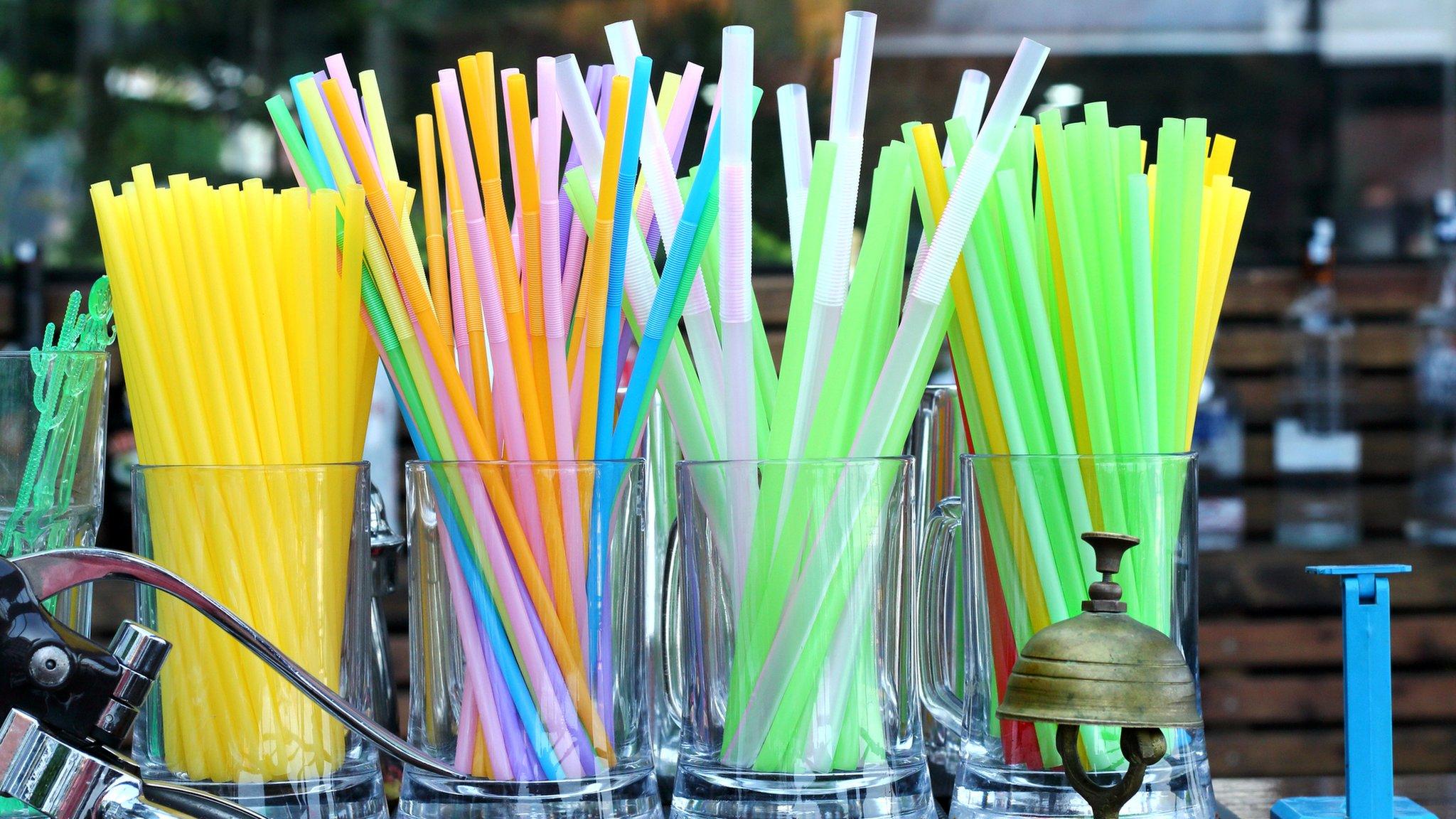Innocent drinks ads banned over environmental claim
- Published
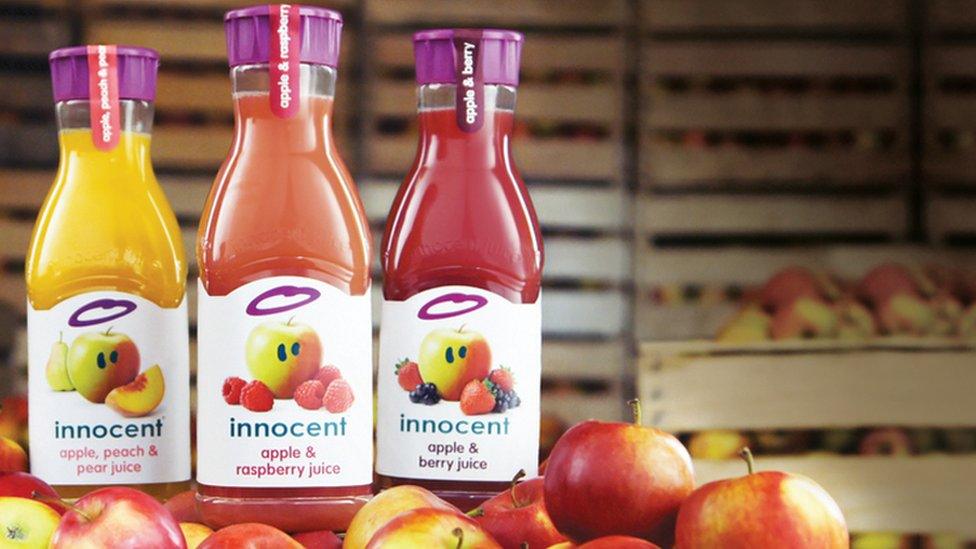
The brand is one of Europe's largest producers of smoothies and fruit juices
Adverts for drinks firm Innocent have been banned after the advertising regulator ruled they "misled" customers over the firm's environmental impact.
The adverts show animated characters encouraging people to "get fixing up the planet" by buying Innocent drinks.
The regulator said it implied buying Innocent drinks "was a choice which would have a positive environmental impact when that was not the case",
Innocent said it had aimed to show "the need for collective action".
But the Advertising Standards Authority said the adverts did not show that Innocent's single-use plastic products had a "net positive" environmental impact over their full life cycles.
Twenty-six viewers, one of whom identified themselves as representing environmental group Plastics Rebellion, complained to the Advertising Standards Authority (ASA) that the adverts misled customers by exaggerating the "total environmental benefits" of the drinks.
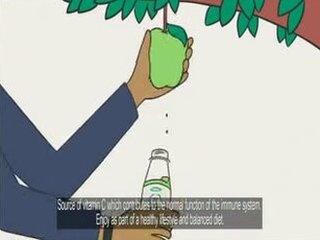
The ASA said the extraction of raw materials and subsequent processing in order to produce its bottles would also have a negative impact on the environment.
Innocent is owned by Coca-Cola. The bottles that Innocent sells in the UK contain 50% recycled plastic and 50% virgin material, not including the caps and labels.
'Misleading' claims
The regulator said that because the ads "implied that purchasing Innocent products was a choice which would have a positive environmental impact when that was not the case", it concluded that the ads were "misleading."
In the ruling, Innocent responded that there was no suggestion in the ads that buying Innocent products would lead to a positive environmental impact. Instead, the ruling states that Innocent said the ad was a "call to action", asking for their drinkers to join them in making changes happen, which was demonstrated by the change of leadership from the man to the otter.
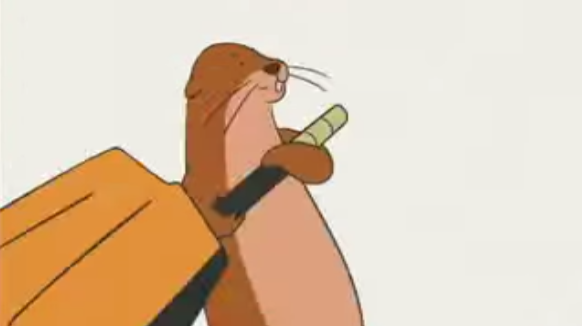
Innocent said: "Our advert was always intended to highlight important global environmental issues and the need for collective action to make a change. We transparently share more about the work that we do on sustainability on our website.
"As with any new guidelines, we'd like to work with the ASA and other brands to understand how to align to them to continue the conversation on these important topics."
Mother advertising agency declined to comment when approached by the BBC.
In a statement, Plastics Rebellion said that Innocent were being "disingenuous" about the dangers of plastic's threat to human health and environment, as well as "trivialising the horrific scale of the problem by repeating the mantra: 'Reduce, re-use, recycle'".
Coca-Cola, owner of Innocent, produces about three million tonnes of plastic packaging a year - equivalent to 200,000 bottles a minute.
In 2019, it was found to be the most polluting brand in a global audit of plastic waste by the charity Break Free From Plastic.
Environmental groups have repeatedly campaigned for single-use plastic to be drastically reduced to prevent pollution.
Scotland has announced it will ban most single-use plastic from June 2022.
In January an advert for Lipton Ice Tea was also banned after the ASA ruled it "misleadingly implied" that all of the Lipton bottle was made from 100% recycled plastic.
The watchdog also banned an Aqua Pura advert earlier this year for the claim "100% recycled bottle" because not all of the parts of the bottle were recycled and warned the firm to ensure they did not "overstate the environmental benefit" of their brand and products, and did not claim that products made of plastic were "eco-friendly" or "nature friendly".
- Published8 November 2021
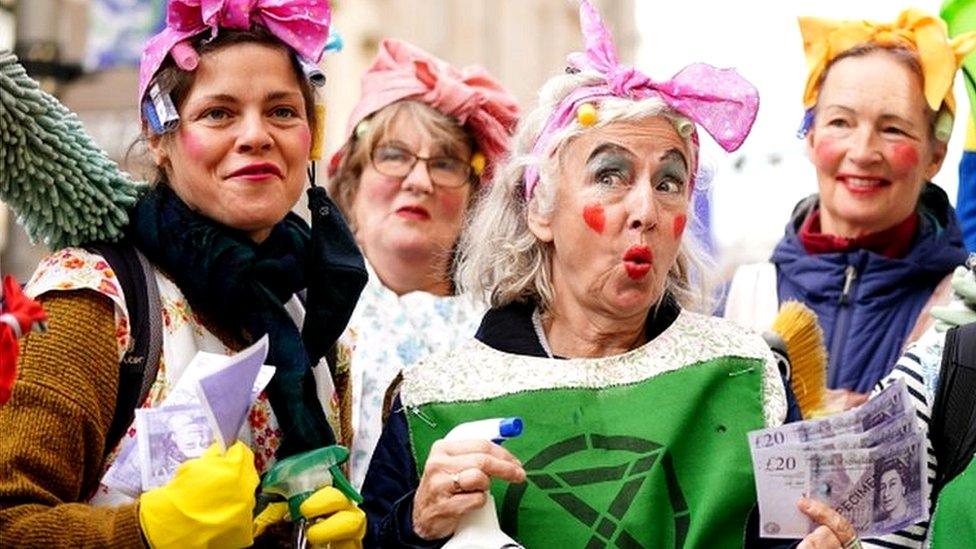
- Published18 May 2021
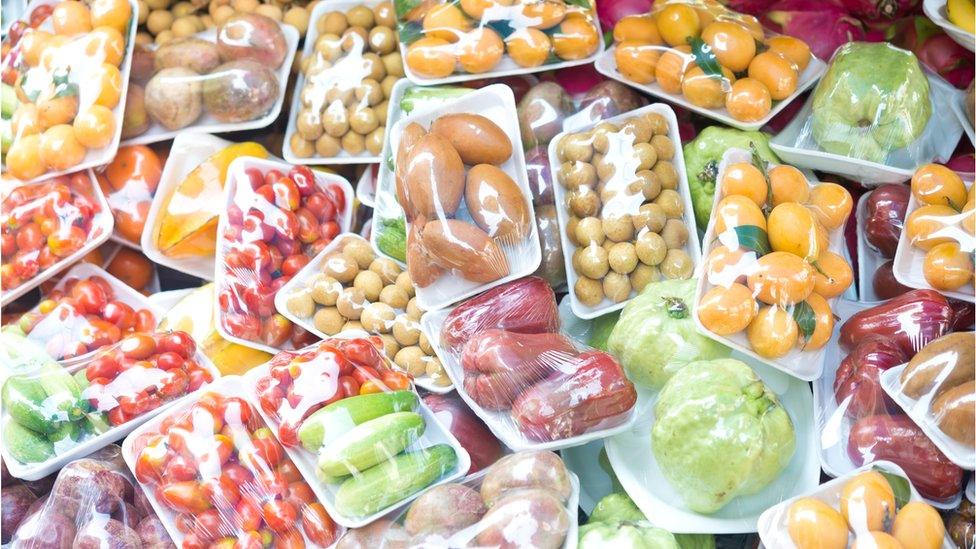
- Published11 November 2021
